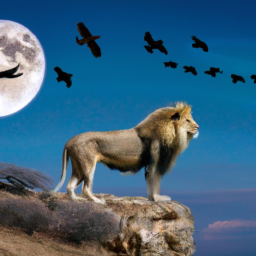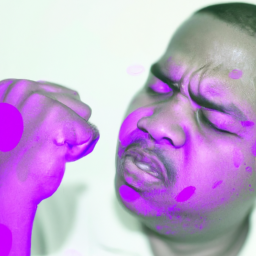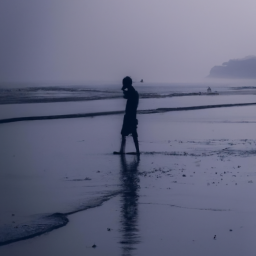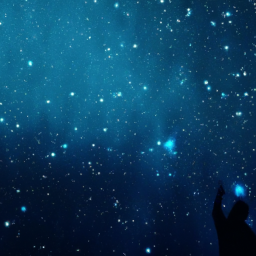I have always been fascinated by the phrase “Champagne wishes and caviar dreams.”
It’s a phrase that conjures up images of opulence and extravagance, of a lifestyle that most of us can only dream of. But where did this phrase come from, and who first said it?
In this article, I’ll be exploring the origins of the phrase ‘Champagne wishes and caviar dreams,’ as well as its significance in the world of high society and luxury living. We’ll delve into the role that champagne and caviar play in this lifestyle, as well as the use of the phrase in popular culture.
Additionally, we’ll examine criticisms of this lifestyle and how it has evolved over time. Join me as we discover the fascinating world of champagne wishes and caviar dreams.
Key Takeaways
- ‘Champagne wishes and caviar dreams’ was popularized by Robin Leach on ‘Lifestyles of the Rich and Famous’ and represents a symbol of luxury and wealth.
- Excessive display of wealth can be seen as vulgar and insensitive, and raises ethical questions on the responsibility of the wealthy towards society.
- The evolution of luxury living is now focused on comfort, convenience, personalized experiences, and wellness amenities, which can contribute to the economy and create jobs.
- The future of aspirational culture will prioritize sustainability and social responsibility, with a focus on creating luxurious and accessible experiences that strike a balance between indulgence and mindfulness.
The Origins of the Phrase ‘Champagne Wishes and Caviar Dreams’
Let’s dive into the origins of the oh-so-luxe phrase ‘Champagne wishes and caviar dreams’! This famous phrase was popularized by Robin Leach, an English entertainment reporter. He used it as a tagline for his hit television show, Lifestyles of the Rich and Famous. The show aired from 1984 to 1995 and showcased the extravagant lives of the wealthiest people around the world.
Leach would often end each episode by saying, ‘I’m Robin Leach, reminding you, champagne wishes and caviar dreams.’ The phrase quickly became a catchphrase and was used to describe a life of luxury and opulence. It has been referenced in countless movies, TV shows, and books.
Today, the phrase is still used to describe a lavish lifestyle that most people can only dream of. Now, let’s explore the world of high society and opulence.
Exploring the World of High Society and Opulence
Indulging in the luxurious lifestyle of the elite circles, one can experience a world of utmost extravagance and refinement. From private jets to exclusive parties, high society is all about living life to the fullest and indulging in the finest things money can buy.
Whether it’s exquisite art collections or designer fashion, the wealthy and affluent are always looking for ways to showcase their opulence and status. One of the most iconic symbols of high society is champagne. This sparkling wine has been a staple at fancy events and celebrations for centuries.
Its association with wealth and glamour only adds to its allure, making it a must-have for any high-end occasion. But champagne is more than just a drink; it’s an experience that embodies the luxurious lifestyle of the elite.
The Role of Champagne in High Society
The high society lifestyle is incomplete without experiencing the effervescence of a luxurious glass of bubbly. Champagne isn’t just a drink; it’s a symbol of wealth, class, and sophistication. Here are some reasons why champagne plays an important role in high society:
-
It’s a status symbol: Champagne is expensive, and not everyone can afford it. Therefore, it’s seen as a symbol of wealth and success.
-
It adds glamour to any occasion: Whether it’s a wedding, a party, or a celebration, champagne adds a touch of glamour and elegance to the event.
-
It’s versatile: Champagne can be enjoyed on its own or paired with a variety of dishes. It’s a versatile beverage that can be enjoyed anytime, anywhere.
-
It’s associated with luxury brands: Many luxury brands, such as Moet & Chandon and Veuve Clicquot, produce champagne. Therefore, drinking champagne is often associated with luxury and high-end brands.
-
It’s a celebration of life: Champagne is often associated with special occasions such as weddings, anniversaries, and New Year’s Eve. It’s a celebration of life and all the good things that come with it.
As important as champagne is to the high society lifestyle, caviar is another staple that can’t be overlooked. Caviar is a delicacy that’s been enjoyed by the wealthy for centuries, and it continues to be a sign of luxury and opulence.
The Significance of Caviar in Luxury Living
Savoring the delicate flavor of this gourmet treat is like experiencing a symphony of taste on your tongue. Caviar, the luxurious delicacy, has been associated with the elite and high society for centuries. Its rarity and exclusivity have made it a symbol of wealth and extravagance.
Caviar is harvested from the eggs of sturgeon, which are found in the Caspian and Black Sea. The eggs are carefully extracted and then salted to preserve their delicate flavor. The color, size, and taste of caviar can vary depending on the species of sturgeon and the location of the harvest.
Its texture is smooth and creamy, with a slightly briny taste that lingers on your palate. Caviar is often served with toast points or blinis and accompanied by a glass of champagne, creating the ultimate indulgent experience.
As for the use of the phrase in popular culture, it’s been famously uttered by Robin Leach in his show ‘Lifestyles of the Rich and Famous.’ The phrase has since become synonymous with the lavish and opulent lifestyle of the wealthy. Its use in popular culture has further solidified caviar’s status as a symbol of luxury living.
The Use of the Phrase in Popular Culture
You can’t help but associate the phrase ‘champagne wishes and caviar dreams’ with a certain level of extravagance and opulence in popular culture. The phrase was popularized by Robin Leach on his show "Lifestyles of the Rich and Famous"in the 1980s. The show featured the lavish lifestyles of celebrities and wealthy individuals, showcasing their luxurious homes, cars, and vacations. The phrase became synonymous with the show and the lifestyle it depicted, and it has been used in various forms of media and advertising ever since.
The phrase has also been parodied and criticized for its excess and materialism. It has been used to mock the lifestyles of the rich and famous and to highlight the societal inequalities that exist. Additionally, the phrase has been used to promote the idea that material possessions and wealth are the key to happiness and success, which is a flawed and harmful notion. Despite its criticisms, the phrase remains a symbol of the excessive luxury and opulence that is often associated with the wealthy elite.
Criticisms of the Lifestyle Depicted in the Phrase
As I delve deeper into the phrase ‘champagne wishes and caviar dreams,’ I can’t help but acknowledge the criticisms surrounding the lifestyle it depicts.
The excessive display of wealth and luxury can be seen as vulgar and insensitive to those who have less. It raises ethical questions about the morality of indulging in extravagance while others struggle to make ends meet.
In this discussion, I’ll explore the negative perception of extravagance and the ethics of wealth and luxury.
Examining the Negative Perception of Extravagance
Excessive indulgence often triggers feelings of guilt and shame, making it difficult to enjoy the luxurious lifestyle associated with phrases like ‘champagne wishes and caviar dreams.’
Being surrounded by opulence and extravagance can be a double-edged sword, as it can be both thrilling and intimidating.
Here are some reasons why the negative perception of extravagance exists:
-
It is often associated with selfishness and greed, as those who can afford a lavish lifestyle are seen as hoarding resources that could benefit others.
-
It can lead to a lack of appreciation for simpler pleasures, as those who are used to the best of everything may take it for granted.
-
It can create a sense of isolation and disconnection from others, as those who live in luxury may feel like they can’t relate to people who don’t.
-
It is often seen as a sign of superficiality, as those who prioritize material possessions over meaningful experiences may be seen as shallow.
Despite these negative perceptions, many people still aspire to live a life of luxury.
In the next section, we’ll be discussing the ethics of wealth and luxury, exploring whether it’s possible to enjoy the finer things in life without compromising our values.
Discussing the Ethics of Wealth and Luxury
Indulging in luxury is a topic that raises ethical questions on the responsibility of the wealthy. As someone who’s been fortunate enough to experience the finer things in life, I believe it’s important to be mindful of the impact that our indulgences have on society as a whole.
While it’s certainly enjoyable to live a life of luxury, it’s crucial that we don’t become complacent in our wealth and privilege. One way to approach this ethical dilemma is by giving back to those who’re less fortunate. Whether it’s through charitable donations, volunteering, or simply being conscious of our spending habits, it’s important to remember that we’ve a responsibility to use our wealth for the greater good.
As we continue to evolve and redefine what it means to live a life of luxury, it’s important to keep in mind the impact that our actions have on the world around us. With this in mind, we can continue to enjoy the finer things in life while also staying grounded in our moral obligations to society.
The Evolution of Luxury Living
Luxury living has come a long way from the days of champagne wishes and caviar dreams, with modern amenities and technology taking center stage. Today’s luxury living is all about comfort, convenience, and personalized experiences. Here are some of the ways in which luxury living has evolved:
-
Smart homes allow you to control everything from lighting to temperature with just a few taps on your smartphone.
-
Private jets and helicopters whisk you away to exotic destinations in style and comfort.
-
Personalized concierge services cater to your every need, from booking restaurant reservations to arranging exclusive experiences.
-
Wellness amenities such as spas, fitness centers, and meditation rooms promote health and relaxation.
As luxury living continues to evolve, it’s important to consider the impact it has on society. The phrase ‘champagne wishes and caviar dreams’ has long been associated with excess and extravagance, but it’s important to remember that luxury living can also contribute to the economy and create jobs.
The Impact of the Phrase on Society
As society continues to chase after the ideal lifestyle, the phrase ‘living in the lap of luxury’ has become a coveted metaphor for comfort and abundance. From extravagant vacations to designer clothing, people are constantly looking for ways to indulge in the finer things in life. However, the phrase "champagne wishes and caviar dreams"takes luxury to a whole new level. It signifies not just material wealth, but a lifestyle of opulence and excess.
The impact of this phrase on society is twofold. On one hand, it inspires people to strive for success and live a life of abundance. On the other hand, it can also create unrealistic expectations and perpetuate a culture of consumerism. As we continue to chase after the ultimate luxury lifestyle, it’s important to remember that true happiness and fulfillment cannot be found in material possessions alone. Instead, we should focus on creating meaningful experiences and connections with others.
Looking towards the future of luxury living, it’s clear that the definition of luxury will continue to evolve. As we become more conscious of our impact on the environment and our communities, we will start to prioritize sustainability and social responsibility in our luxury purchases. The future of luxury living will be about finding a balance between indulgence and mindfulness, and creating a lifestyle that is both fulfilling and responsible.
The Future of Luxury Living
As I look ahead to the future of luxury living, I’m excited to delve into the trends shaping the industry.
From smart home technology to sustainable design, there’s much to explore.
I’m also interested in discussing the future of aspirational culture and how it will continue to influence the way we live and consume.
Analyzing the Trends in Luxury Living
Get ready to indulge in the ultimate high-end lifestyle, as I analyze the latest trends in luxurious living.
One of the most significant trends is the focus on sustainability. Luxury living isn’t just about excess and extravagance anymore; it’s also about minimizing the impact on the environment. Developers are incorporating sustainable features into their properties, from eco-friendly materials used in construction to energy-efficient appliances. This not only benefits the planet but also appeals to a growing number of environmentally conscious consumers.
Another trend is the integration of technology into luxury living. Smart homes are becoming more popular, allowing residents to control everything from the temperature to the lighting with just a few taps on their smartphones. High-tech security systems and home automation are also on the rise. Developers are recognizing the importance of creating a seamless and effortless living experience, and technology is a key component in achieving this.
As we move forward, it’s exciting to see how technology will continue to shape the future of luxury living. Now, let’s discuss the future of aspirational culture.
Discussing the Future of Aspirational Culture
As we’ve discussed earlier, luxury living has evolved throughout the years. From the opulent lifestyles of the past to the more modern and practical approach of today, there’s no denying that the concept of luxury living has constantly changed.
However, one thing that has remained constant is the idea of aspirational culture. People always aspire to achieve something greater, something more luxurious, and something that others can only dream of having.
As we look into the future of aspirational culture, it’s interesting to see how it will continue to evolve. With the rise of technology and social media, people are now more exposed to the luxurious lifestyles of others. This has led to an increase in demand for aspirational products and experiences.
Brands are now more focused on creating aspirational experiences that are not only luxurious but also accessible to a wider audience. The future of aspirational culture is all about creating experiences that make people feel special, inspired, and empowered.
Frequently Asked Questions
What is the recipe for making champagne?
To make champagne, you start by selecting the right grapes and pressing them into juice. Then, the juice is fermented, blended, and aged. Finally, the bottle is riddled, disgorged, and corked. It’s a complex process, but the end result is worth it.
What are some alternative phrases that are commonly used in high society?
In high society, phrases like "living the good life"and "keeping up appearances"are commonly used. Those who enjoy luxury might say they’re "living like royalty"or "dining in style."
How has the concept of luxury living changed over time?
Luxury living has changed drastically over time. In 2019, the global luxury goods market was worth $1.4 trillion, with Asia-Pacific being the largest market. Today, luxury is more about experiences and personalization than material possessions.
What are the negative effects of promoting a lifestyle of excess and extravagance?
Promoting a lifestyle of excess and extravagance can lead to a distorted sense of priorities and values, perpetuating a culture of materialism and waste. It also perpetuates inequality and reinforces harmful gender and social norms.
How has the use of this phrase affected the sales of champagne and caviar?
The phrase "champagne wishes and caviar dreams"has created a symbol of luxury and excess. As a result, the sales of champagne and caviar have increased due to the association with this opulent lifestyle.
Conclusion
Well, folks, it’s been quite a journey exploring the world of high society and luxury living through the lens of the phrase ‘Champagne Wishes and Caviar Dreams.’
As someone who’s always been fascinated by the lifestyles of the rich and famous, it was eye-opening to delve deeper into the role that champagne and caviar play in this world.
Did you know that in 2019 alone, the global champagne market was valued at over $5 billion? That’s a staggering amount of money spent on a single luxury item.
It just goes to show that, despite criticisms and shifting cultural attitudes towards opulence, there’s still a significant demand for the finer things in life.
As we continue to navigate an ever-changing social landscape, it’ll be interesting to see how the concept of luxury evolves and adapts to new cultural norms and values.
One thing’s for sure, though – the allure of champagne wishes and caviar dreams will always hold a certain mystique and fascination for those of us on the outside looking in.









